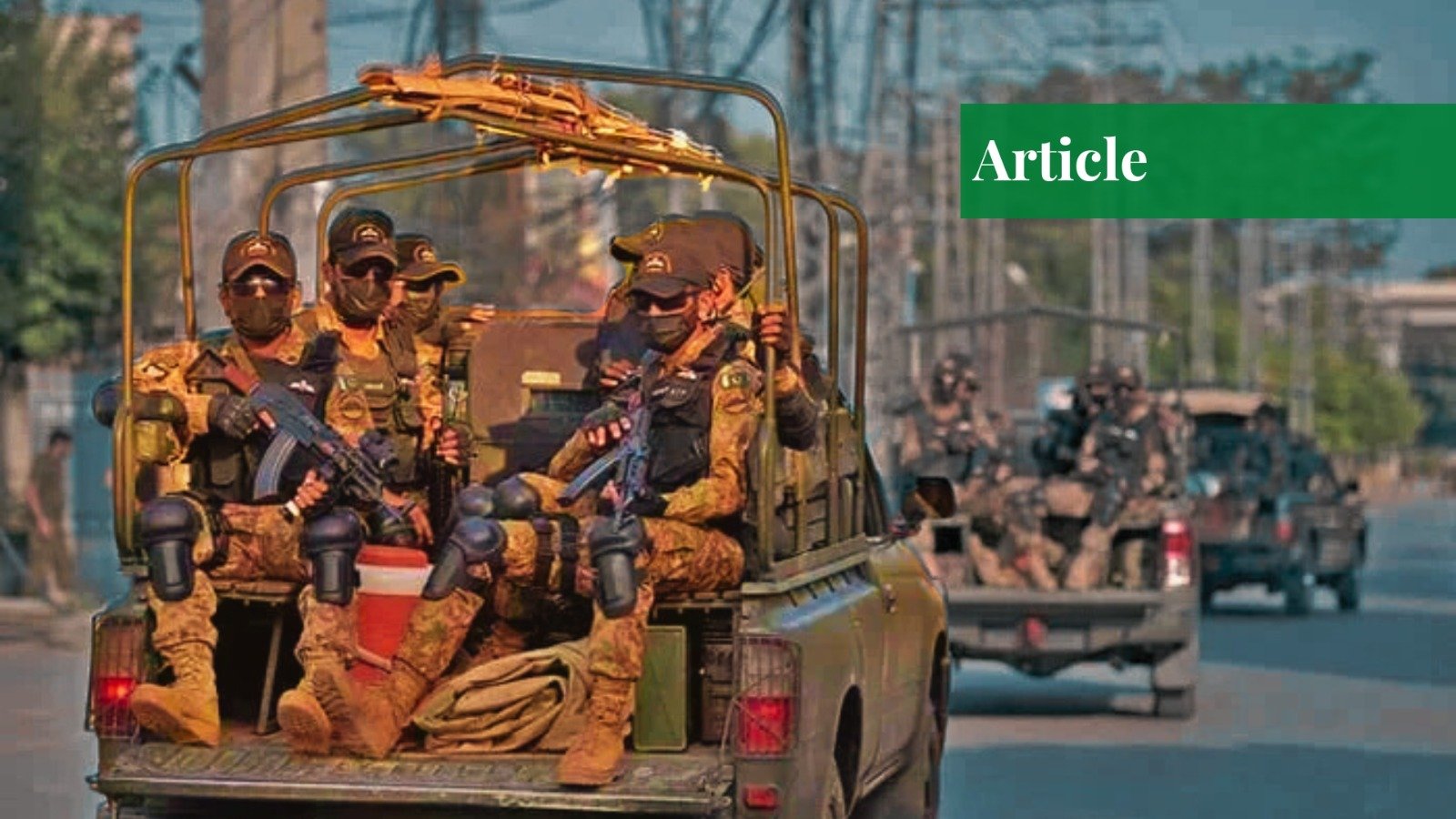The issue of terrorism and insurgency can be considered the birthmark of Pakistan. Since 1947, Pakistan has been facing terrorism and separatist movements. The Pakistan Army had inflicted heavy blows on the insurgencies orchestrated throughout history, even though this year is again witnessing an increased insurgency in the tribal areas of Pakistan, especially Balochistan. The province of Balochistan is of utmost significance concerning its critical location and abundant natural resources. Various separatist organizations, including Baloch Liberation Army (BLA) and its factions, Baloch Liberation Front (BLF), and Baloch Republican Army (BRA), are operating deep inside Balochistan under the supervision of Baloch Raaji Aajoi Sangar (BRAS).
In such a volatile and terror-crowded place, it becomes seriously difficult to maintain law and order through peaceful means. The rival states start taking advantage of the vulnerable situation of the other state, and a proxy conflict gets started. Balochistan is meeting the same fate. Indian intelligence agencies are funding the Baloch terrorists to create social and economic vulnerabilities for Pakistan. Thus, on 15 September 2025, an Indian proxy named “Fitna-al-Hindustan” attacked the security forces of Pakistan deployed in the Kech District of Balochistan. This attack resulted in the killing of Pakistan Army soldiers. This escalating crisis highlights the gravity of the situation, impacting regional stability and security deeply.
Sanitisation Operations in Balochistan
The Pakistan Army has initiated a series of operations codenamed “Sanitisation” in the tribal areas of Pakistan, including Balochistan, FATA, KPK, etc. Operation Sanitisation refers to the cleansing of a particular area from terrorists or any kind of remaining explosive material. Just as sanitisation means to clean the germs, in military terms, it entails a search operation where not only terrorists but also their residual material, i.e., weapons, explosive devices, land mines, etc., are eliminated so that the area can be used by soldiers freely and post-conflict development can be started.
The sanitisation process consists of several phases. First of all, the area is surrounded by soldiers from all sides so that no terrorist can escape. The next step is the search and elimination operations, where security forces kill every single terrorist and clean the area of any kind of explosive or weapon. The third phase is known as the recovery operation, where soldiers collect unexploded bombs, weapons, and communication devices to be recovered by the army. The last step is known as the stabilization, where security forces, through tight control and surveillance, create a strict law and order situation so that future terrorist infiltrations can be stopped.
September 2025 Attack
According to statements by the Inter-Services Public Relations (ISPR), the explosion occurred on 15 September 2025 during a sanitisation operation in Sher Bandi, Kech district, Balochistan. As a result, five brave sons of the soil embraced martyrdom, including a captain. In a follow-up action, security forces killed five terrorists linked to the group ‘Fitna Al Hindustan,’ described by the Pakistan security sources as “an Indian proxy.”
| Names of Martyrs | Area |
| Captain Waqar Ahmed | Loralai |
| Naik Asmat Ullah | Dera Ghazi Khan |
| Lance Naik Junaid Ahmed | Sukkur |
| Lance Naik Khan Muhammad | Mardan |
| Sepoy Muhammad Zahoor | Swabi |
Causes of the Attack
Various geographical and operational factors have contributed to the loss of precious lives of our soldiers in Balochistan. The extremely tough terrain of the Kech district is the primary cause. Secondly, the mountains provide another layer of challenges. This harsh plain provides ample opportunities for the terrorists to secretly continue their operations and plant various deadly explosive devices all over the area. Furthermore, this condition makes intelligence and surveillance extremely difficult for the security forces.
Another major cause is the use of Improvised Explosive Devices (IEDs) by terrorists. Their use has enabled the terrorists to engage in indirect warfare with the security forces deployed in the area. Moreover, the IEDs also result in more severe humanitarian losses than direct combat. Last but not least is the foreign funding to these militant factions. According to the security sources of Pakistan, the perpetrator of the September 2025 attack was ‘Fitna-al-Hindustan,’ getting immense materialistic support from India.
Implications for Pakistan
This attack and the martyrdom of five brave soldiers of the Pakistan Army will have serious military, political, economic, and social implications in Balochistan. The attack by militants on the Pakistan Army will definitely generate a strict response from security forces, including high patrols, combat, surveillance, and drone attacks. It would also create difficulties for the local population. In terms of political implications, the already set narrative of the government of Pakistan will be strengthened, and strict border security will be enforced.
Opposition parties will try to curb the decisions of the government, but they will not be able to stop the state from putting an iron hand on the militants. Economically, the increase in operations by security forces will require extra budget and technological equipment, especially for logistics and intelligence. Moreover, such increasing attacks will create social vulnerabilities, including psychological fears in the local population. In addition, due to the connection of Baloch militants with Indian agencies, the region will witness harsher relations between India and Pakistan in the security prism.
Conclusion
The IED explosion in Kech on September 15, 2025, that claimed the lives of five sons of the motherland, is a strong reminder of how the efforts are still ongoing to stabilize Balochistan. It truly reflects how, irrespective of the determination of the military and continuity of operations, militants still appear to enjoy the advantage in certain circumstances. The martyrdom of these soldiers should motivate more than mere fleeting military operations. It should encourage a deeper, more national commitment to comprehensive solutions.
If Pakistan can truly combine the valor of its armed forces with ongoing political reforms, a fair economic landscape, and smart diplomacy, then there’s a real chance to break this violent cycle. By taking these steps, the sacrifices made in places like Kech won’t just be seen as moments of national sorrow. Instead, they could mark crucial turning points toward building a stable, inclusive, and peaceful Balochistan.
If you want to submit your articles and/or research papers, please visit the Submissions page.
To stay updated with the latest jobs, CSS news, internships, scholarships, and current affairs articles, join our Community Forum!
The views and opinions expressed in this article/paper are the author’s own and do not necessarily reflect the editorial position of Paradigm Shift.
He is pursuing a BS in International Relations programme from International Islamic University, Islamabad and has a keen interest in research works, policy analysis, defence and strategic studies and conflict resolution.



